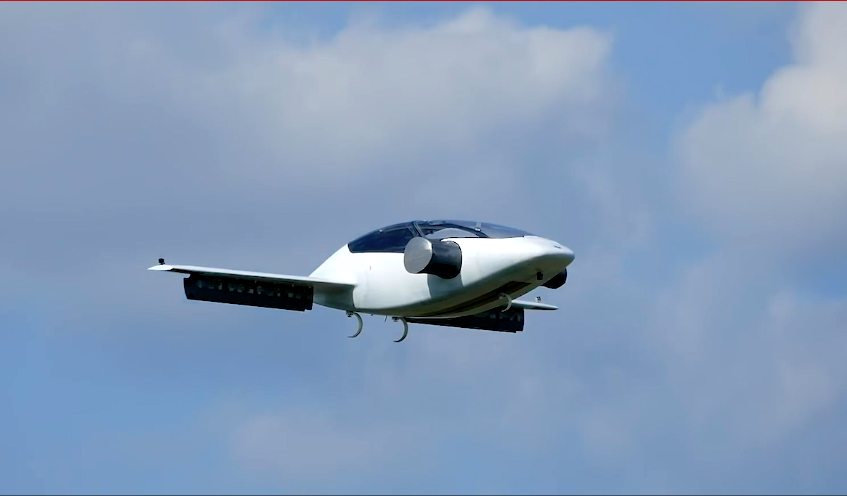Lilium: Heading all the way up
'High flyer' refers to anyone who has great potential to be successful, especially in business. The phrase could not be more apt for the Munich startup Lilium who have got off to a rapid, promising start with their product. They envision their small electric aircraft replacing taxis and limousines, flying clients the distance from Boston to New York within an hour.
The startup is on the rise in the German startup scene, having featured on CNN and in the New York Times. The German Federal Ministry for Economic Affairs and Energy's Digital Hub Initiative provided support with its take-off:
"The founders were in contact with us right from the beginning," says Simon Herzog, Project Manager for Future Mobility at the Mobility Hub Munich. "They made their first prototypes in our Maker's Space, and to the best of my knowledge, they’ve now gathered more than 100 million Euros in venture capital. They have also shared stages with Andreas Scheuer, the former Parliamentary Secretary of State for Transport, Building and Urban Development, and Angela Merkel, the Chancellor of Germany."
The Mobility Hub Munich: What it means to startups
"Aerospace is a challenging sector for startups but the help we received from the Digital Hub helped us take concrete steps towards making flying by air taxi a reality," says Lilium's Press Officer Oliver Walker-Jones. "Being part of their network of early-stage companies has also been valuable."
The Digital Hub Initiative comprises of 12 Digital Hubs located across various regions in Germany. They offer everything from offices in co-working spaces to networking events such as "pitch nights" that put young entrepreneurs in contact with investors.
Maiot is another fledgling company that has benefitted from the Mobility Hub Munich. Maiot uses big data to create a predictive platform that anticipates the wear and tear of trucks and informs fleet managers about potential problems on time. The idea is to limit unplanned downtime for truck maintenance which costs industrial manufacturers over $50 billion every year.
For Maiot's CEO Adam Probst, commercial vehicles are computers on wheels. The chance to work with the Digital Hub Munich was a major factor in the 30-year-old’s decision to start his own business:
"The day I learned that the Mobility Hub was being launched in Munich, I quit my job – I absolutely wanted to be a part of it," says Probst. "I've met my co-founder, my first partners, and a wonderful network through the Digital Hub Munich."
The Digital Hub Initiative is going global
All Digital Hubs are open to both German and foreign entrepreneurs. Herzog says that he uses his personal connections in countries as different from each other as Israel and Brazil to raise the profile of the Digital Hub Initiative abroad. He also hopes that the Digital Hubs will play a key role in a post-Brexit environment:
"Germany is the biggest economy in the European Union," explains Herzog, "and if you move your headquarters to Germany, you'll stay connected to the EU single market."
With so much to offer both local and international entrepreneurs, it's worthwhile to consider how the Digital Hub Initiative could boost your new business here in Germany. Find more about the Mobility Hub Munich here.



